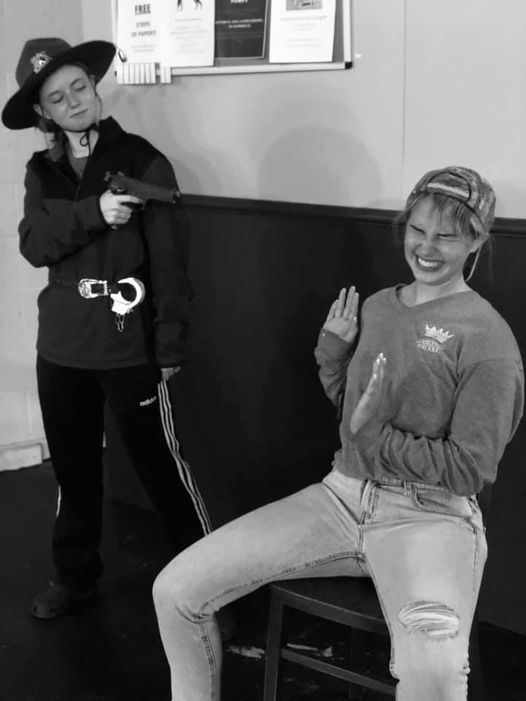
If experience is the best teacher, the last few weeks have given Harper Hesskew advanced degrees in the dangers of censorship and the application of irony in real life.
The Brownsboro senior has also learned some painful lessons about trust and forgiveness that she will not soon forget.
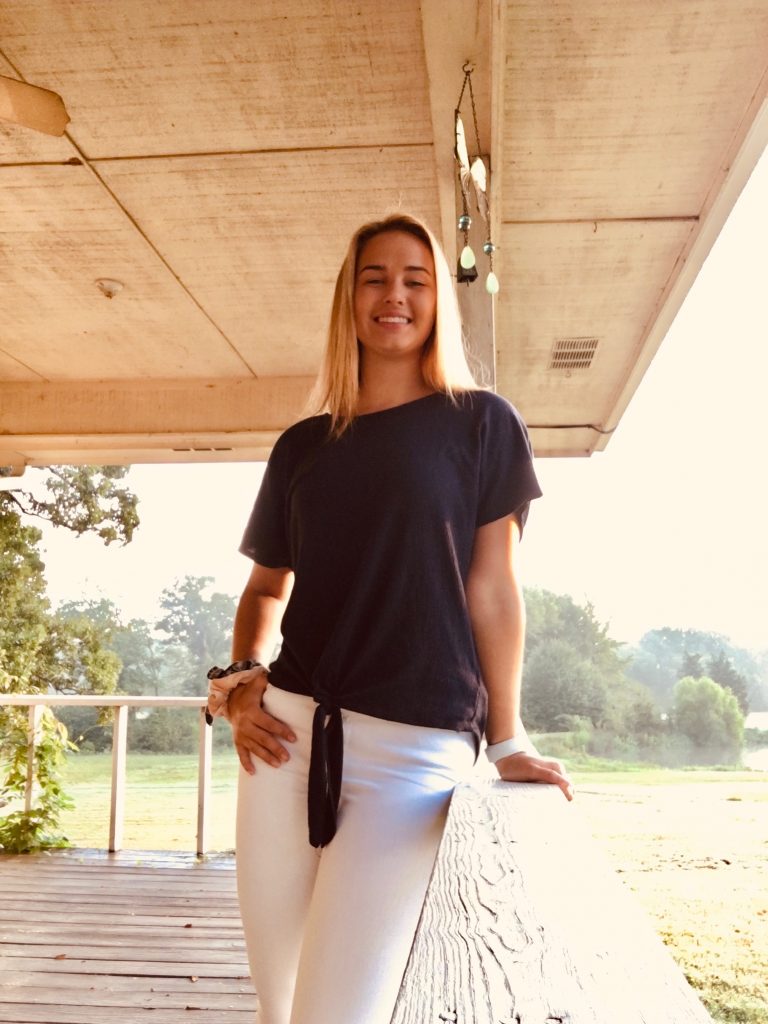
Harper’s education was all related to her uttering two words in the Brownsboro High School fall play, “Greater Tuna,” a word that was written in the original script but later edited out of the Brownsboro performance script by Director Kevin Bailey, a drama teacher at the school.
The word was “goddamn.”
“It was in the first script we got,” Harper said. “Then a few days later, we got another script where it had been taken out.”
Nevertheless, Harper said she knew she was not supposed to say the word.
“It was our first night and I was nervous and it just came out. I realized right away that I had messed up, but I just went on with the part.”
Harper would soon find out that in the opinion of the school’s teachers and administrators, “messed up” hardly described the way they saw the infraction.
The play’s the thing
“Greater Tuna” is about life in a fictional Texas town, told mostly through two characters who are announcers on the local radio station.
The play — a comedy — takes on serious subjects such as censorship, racism, crime and punishment, and has been a favorite for high schools and community theater groups for years. It was one of four “Tuna” plays written by Texans Ed Howard, Jaston Williams and Joe Sears.
In professional theater, Williams and Sears played all the parts and Howard directed the play for more than 25 years, but other groups typically have different actors for most parts.
Harper, who has been a part of a half-dozen plays with the Brownsboro High drama class, was cast in the role of Stanley Bumiller, a Tuna troublemaker who has recently returned from reform school, having been sent there by Judge Buckner, the murder victim.
In all four of the “Tuna” plays, men’s and women’s roles are often played by the opposite sex.
In the passage, Stanley reveals that he is responsible for the judge’s death after having dressed the judge as a female cheerleader.
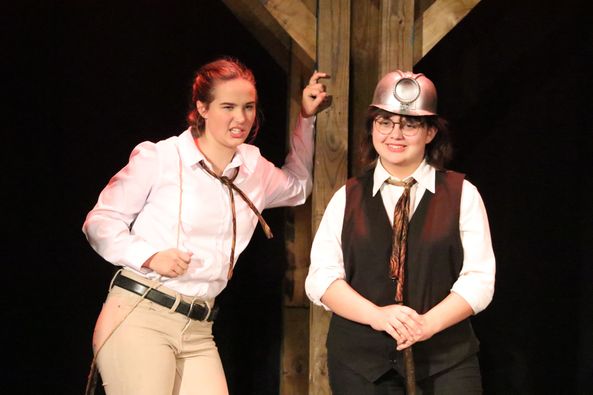
As soon as Harper stepped off the stage, another cast member told her: “The director wants to see you.”
She said she knew that meant it would not be taken lightly, though she still did not fathom just how serious her punishment would be.
“I thought maybe they were going to forgive and forget,” Harper said.
Neither of those options were a part of the discipline plan.
“The director was very mad and said he would talk to me later. He said the superintendent, Dr. Keri Hampton, was in the audience for the performance. I really think a lot of his reaction is because he has strong feelings about those words,” Harper explained.
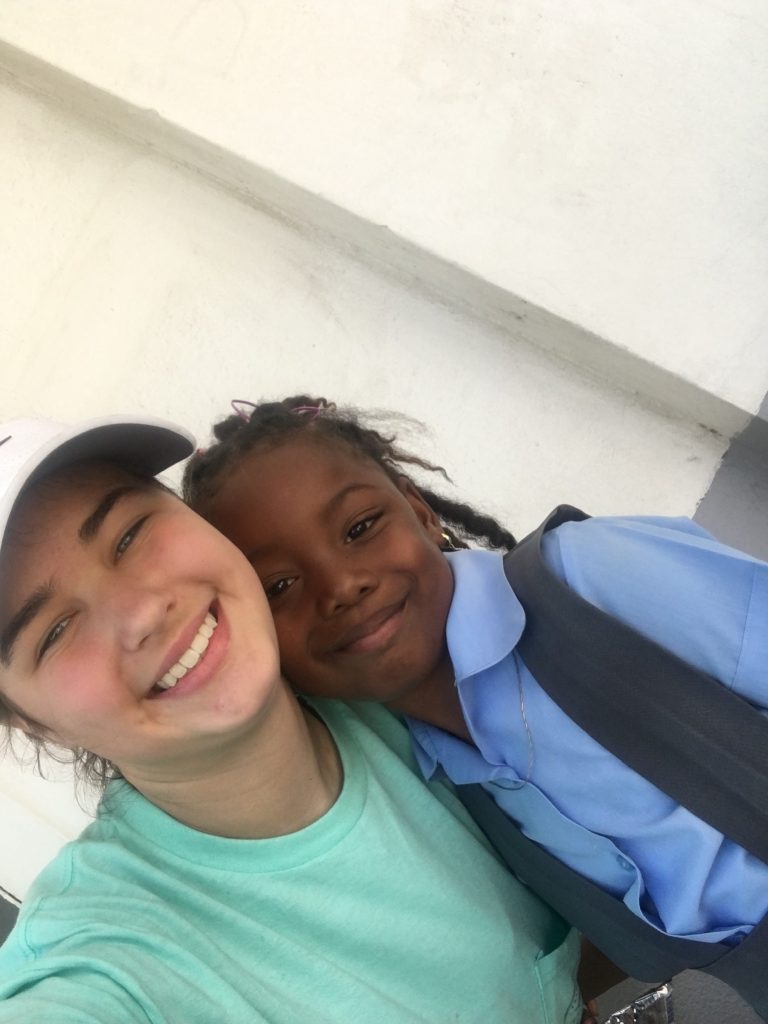
The director was Brownsboro drama teacher Kevin Bailey. His wife, Vanessa Bailey, is also a drama teacher at the school.
Exit stage right
The next day, Harper was summoned to the principal’s office at the beginning of school and told she would be removed from the play. This was a punishment she had not been expecting.
“The director said he just couldn’t trust me anymore,” Harper said. “He said if I did something like that at the one act play competition, the school could get disqualified.”
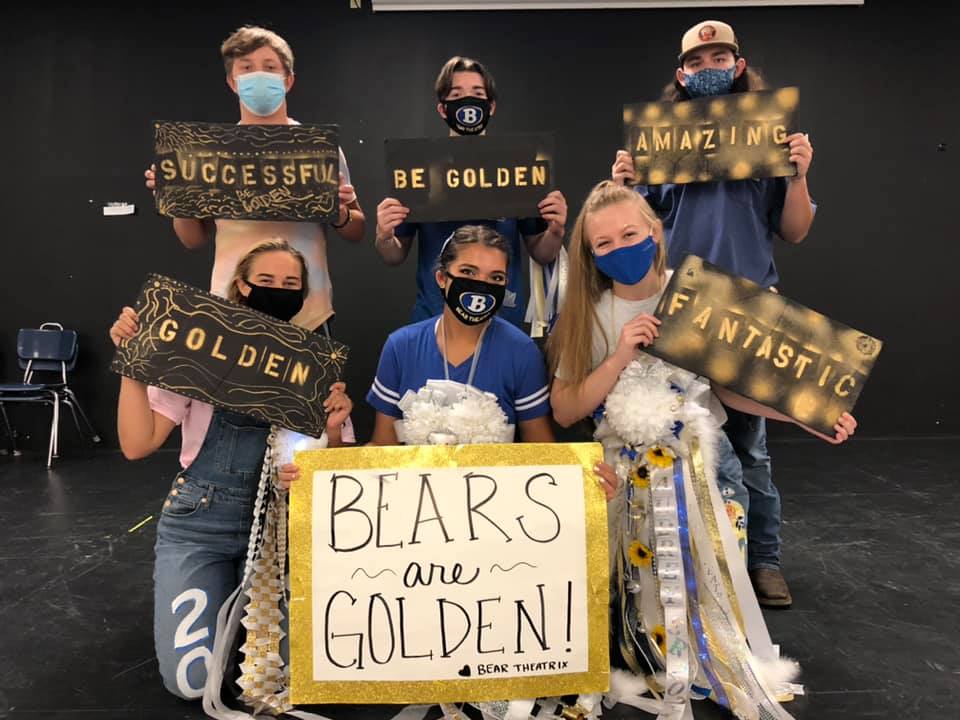
The comment must have seemed strange to Harper, who had never done something similar before in any of the productions where she had a part.
“He didn’t believe that it had just slipped out,” she said. “He thought I did it on purpose to get a laugh.”
Harper insists that was not the case but in the meeting she said she was mostly quiet.
“I acknowledged I shouldn’t have said it. I didn’t argue with them. I just took it.”
She said she had already been named as a part of the cast in the one act play, but she voluntarily withdrew to end the matter.
Brownsville High School administrators were asked to comment on this story but did not respond to questions sent to them by email.
Help from the wings
After she was removed from the play, friends and other teachers rallied around her.
“Some thought it was just the stupidest decision ever,” she said. “Some of my friends had tickets and wanted to boycott the play but I told them not to do that. We had spent months working on that play and I didn’t want that to go to waste.”
She said one teacher told her she had no reason to be ashamed. Several teachers gave her hugs after the announcement, including one who had been in the audience that night.
Harper may have kept her silence, but others would continue to ask that she be allowed to return to the role. Harper’s father, Jason Hesskew, was contacted by Bailey the next morning and told that Harper had been removed.

“I asked him on what basis he had removed her,” Hesskew, who teaches history at Tyler’s Legacy High School, said. “I pointed out that removing a student from any performance — whether football, soccer or a play — for one infraction was highly unusual. He said that the superintendent had been in the audience and that he started getting pressure about 10 p.m. that night on the phone.”
Hesskew asked for a meeting with Principal Brent Cooper the next day. He said both the teachers and the principal said that Harper had never had behavior problems on campus. Hesskew asked that she be restored to the Saturday night role, missing the Friday performance.
He gave them the day to consider his request for the Saturday performance, expecting a call that never came.
A playwright’s support
Hesskew was not done hoping to help his daughter. He emailed several people he knew whom he thought might be able to help him contact Jaston Williams, one of the “Tuna” playwrights.
He got through to Williams’ manager — coincidently also named Kevin Bailey — who said he would tell Williams of the situation.
Within an hour Williams called, offering his support.
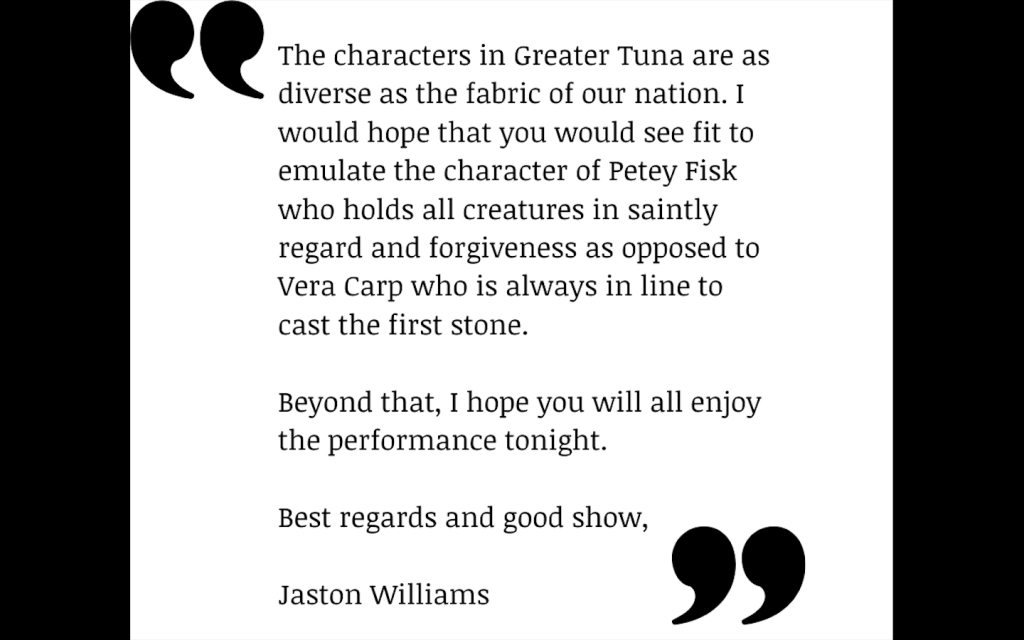
“He was supportive and kind and sad that this had happened to Harper. He offered to write a letter to the school board and send it to me that day. Both men called Harper to speak to her and offer their support.” Hesskew said.
That wasn’t all. Williams would also promise to write a monologue for Harper and post it on his web page for her.
Adding her testament to Harper’s character was Melanie Edwards, director of student ministries at Christ Church Episcopal in Tyler.
“Harper is an active member of our Episcopal youth community,” Edwards wrote in a letter. “As her youth director I can gladly vouch for her personal leadership abilities and dedication to setting a good example for others around her.
As a senior, especially during the recent and current events in our community and country, I know how important this play is to Harper. I genuinely believe that an opportunity to extend love and grace toward Harper in this situation would not only be immensely appreciated but also provide a great learning experience for her.”
Roses for some but not all
Despite never hearing from the school, Hesskew and Harper attended the Saturday night performance to support her friends.
Hesskew remembers what happened next.
“At the play’s end, the students went to meet their families outside. The Baileys provided roses to all the seniors in the play — apparently this is a tradition at Brownsboro. However, they did not provide one for Harper, even though she had worked for three months after school on the play.”

Still, Hesskew believes there is some silver lining. Jaston Williams invited them to San Antonio to see one of his few live performances of the year. “Blood and Holly” is a one man show about Christmas in West Texas.
Harper plans to attend Texas Tech where Williams also occasionally teaches, and she may minor in theater, though she says it will not be her major.
Hesskew reflected further. “We were told that Harper had to become an example for the rest of the department. Harper’s a great kid who made a single mistake, apologized but was still removed from something she loved. I would hope she learns from this that adults, unfortunately, often struggle with the tenets of their faith and will sometimes do regrettable and hypocritical things. And there are still people out there — complete strangers — who are willing to drop everything in their busy lives and take a stand for kindness, and compassion and generosity.”
“We’ve made two fine new friends,” Hesskew added.
Perhaps Harper’s glass is even more than half full.
Phil Latham has been an East Texas journalist for more than 45 years as a reporter, editor, publisher and editorial page editor. He writes a weekly column available at https://platham56.wixsite.com/website. He has also written two novels. Readers can contact Phil at [email protected]. He lives in Smith County with his wife and three pups.
Love what you're seeing in our posts? Help power our local, nonprofit journalism platform — from in-depth reads, to freelance training, to COVID Stories videos, to intimate portraits of East Texans through storytelling.
Our readers have told us they want to better understand this place we all call home, from Tyler's north-south divide to our city's changing demographics. What systemic issues need attention? What are are greatest concerns and hopes? What matters most to Tylerites and East Texans?
Help us create more informed, more connected, more engaged Tyler. Help us continue providing no paywall, free access posts. Become a member today. Your $15/month contribution drives our work.







